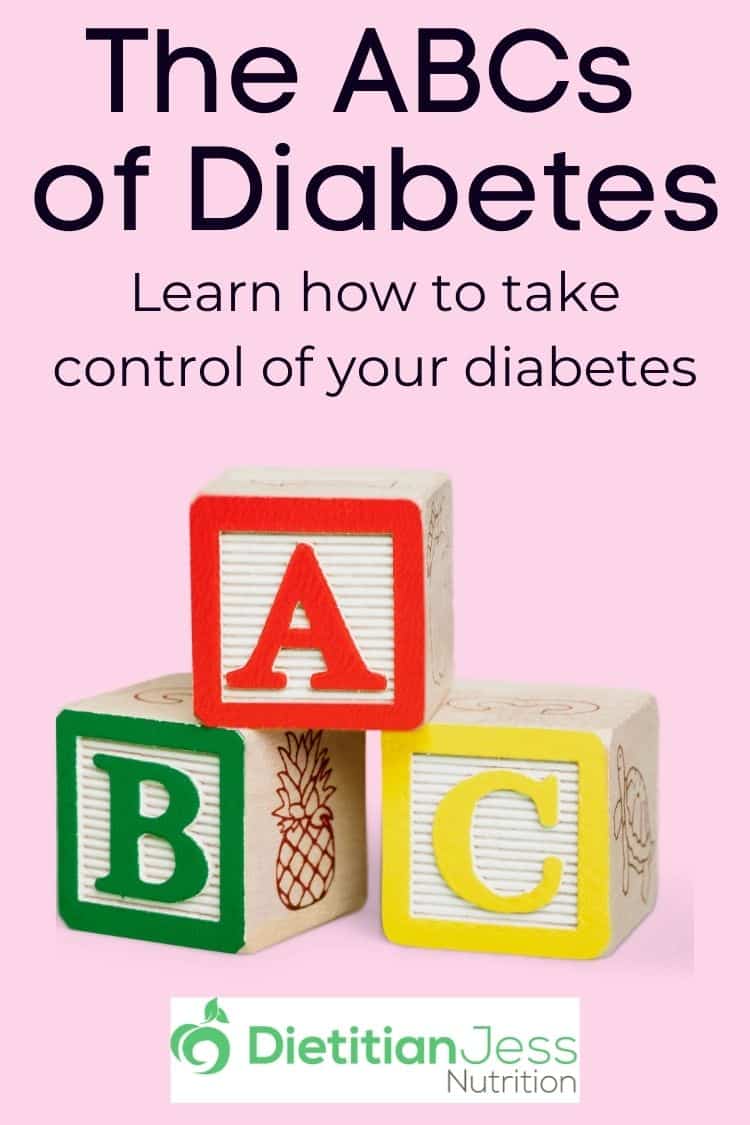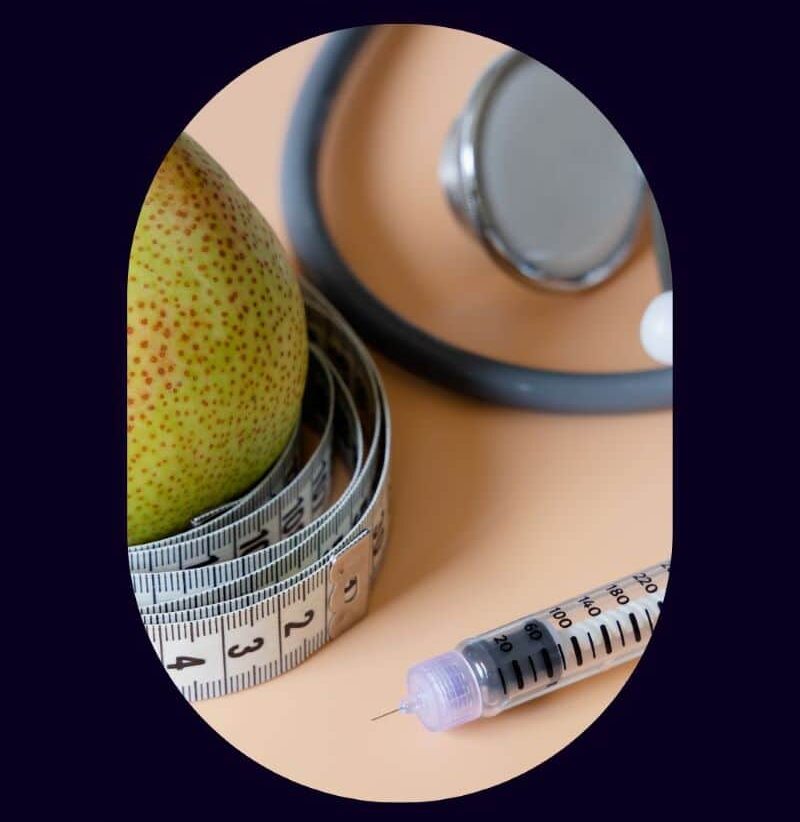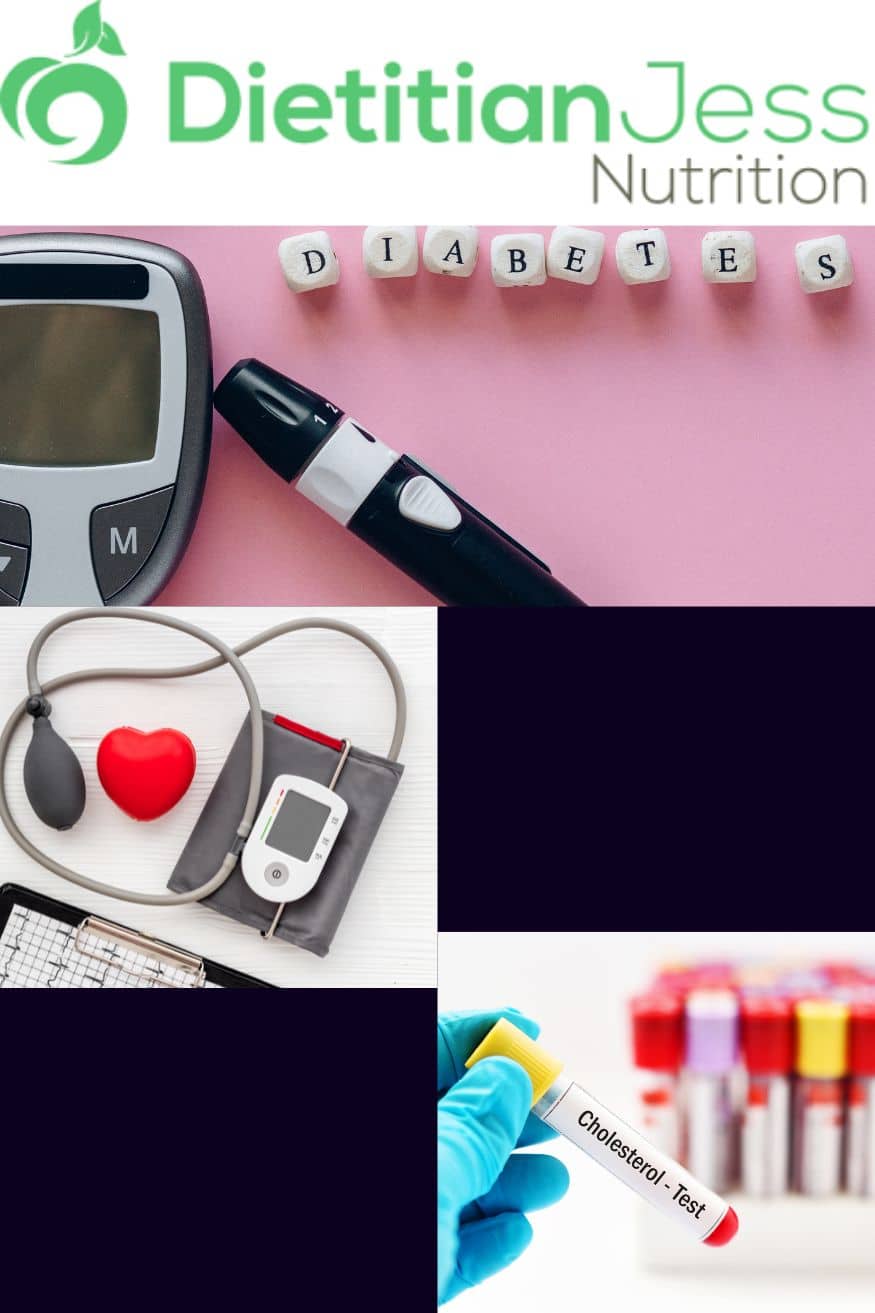The ABCs of Diabetes Management
The ABCs of diabetes refer to:
- A1C – is a measurement of the average blood sugar (glucose) level over the past 2-3 months
- Blood Pressure – is the force of blood pushing against the walls of your blood vessels as your heart pumps blood around your body
- Cholesterol is a waxy, fat-like substance that your body needs for good health, but only in the right amounts.(There are different types of cholesterol.)
Mastering your A1C, blood pressure, and cholesterol is crucial for preventing complications and living a long, healthy life with diabetes. Whether you’re newly diagnosed, struggling with control, or simply seeking to deepen your knowledge, this comprehensive guide will help you take charge of your diabetes health.

A is for A1C
Your A1c measures your average blood sugar levels over the past 2-3 months. It’s a critical indicator of how well you’re managing your diabetes.
- Target A1C: Below 7% (but consult your doctor for personalized goals)
- High A1C levels increase the risk of complications for eyes, kidneys, blood vessels, and more.
What improves A1c?
- Diet: Carbohydrate intake, portion sizes, and food choices significantly impact blood sugar.
- Exercise: Regular physical activity enhances insulin sensitivity and helps lower blood sugar.
- Diabetes Medications: Adhering to your prescribed medication regimen is crucial.
- Stress: Stress hormones can raise blood sugar levels.
- Illness: Infections and other illnesses can disrupt blood sugar control.
- Sleep: Poor sleep can negatively affect insulin sensitivity.

B is for Blood Pressure
Keeping your blood pressure within a healthy range is essential for heart health, especially for those with diabetes.
- Target Blood Pressure: Below 130/80 mmHg
- High blood pressure puts extra strain on your heart, kidneys, and blood vessels, increasing the risk of stroke and heart disease.
What improves blood pressure?
- Follow the DASH Diet – The Dietary Approaches to Stop Hypertension (DASH) diet focuses on fruits, vegetables, whole grains, lean proteins, and healthy fats.
- Exercise Regularly – Aim for at least 150 minutes of moderate exercise per week (walking, swimming, strength training, etc.).
- Limit Alcohol & Avoid Smoking – Excess alcohol can raise blood pressure, and smoking damages blood vessels.
- Manage Stress – Practices like deep breathing, meditation, yoga, or spending time in nature can help
- Stay Hydrated – Dehydration can cause blood vessels to constrict, leading to higher blood pressure
- Limit Caffeine – Some people are sensitive to caffeine, which can cause temporary blood pressure spikes.

C is for Cholesterol
Cholesterol levels play a significant role in heart health, particularly for individuals with diabetes who are at higher risk of cardiovascular disease.
- Target Cholesterol Levels:
LDL (“bad” cholesterol): Below 100 mg/dL
HDL (“good” cholesterol): Above 40 mg/dL (men) and 50 mg/dL (women)
Triglycerides: Below 150 mg/dL - High LDL and triglycerides increase the risk of heart disease, while healthy HDL levels help protect your heart.
What can you do to improve Cholesterol?
- Increase Fiber Intake – Soluble fiber binds to cholesterol and helps remove it from the body. Good sources:
- Eat More Healthy Fats – Replace saturated fats with unsaturated fats:
- Choose Lean Proteins – Focus on plant-based proteins (beans, lentils, tofu) and lean meats like skinless poultry.
- Limit Saturated & Trans Fats – These raise LDL cholesterol.
- Increase Plant Sterols & Stanols – Naturally found in nuts, seeds, whole grains, and some fortified foods, these help block cholesterol absorption.
- Exercise Regularly – At least 150 minutes of moderate activity per week (walking, cycling, strength training) can boost HDL and lower LDL.
- Get Enough Sleep – Poor sleep can negatively impact cholesterol levels and heart health.
- Quit Smoking – Increases HDL and improves overall heart health.
- Limit Alcohol – Too much can raise triglycerides and contribute to high cholesterol.

Can diet alone help lower A1C, blood pressure, and cholesterol?
Yes! A well-balanced diet combined with exercise can significantly improve all three markers. However, some individuals may still require medications or insulin therapy for optimal control.
Taking Control of Your Diabetes:
Managing diabetes involves understanding and taking control of your ABCs. This means proactively monitoring your numbers, collaborating with your healthcare team, and adopting healthy lifestyle habits. By prioritizing these key areas, you can significantly improve your diabetes management and reduce your risk of complications.
Take control of your diabetes today! Schedule your free consult to discuss your target goals and develop a comprehensive diabetes management plan.



